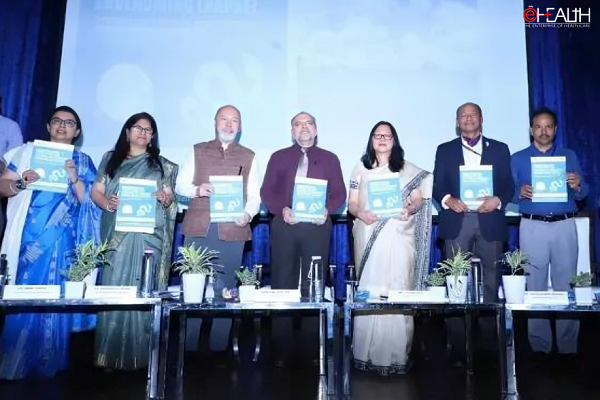
In Short
- The Union Health Ministry launched the National Action Plan for Prevention and Control of Snakebite Envenoming in India, aiming to halve snakebite deaths by 2030 through a ‘One Health’ approach, with a focus on awareness, helpline support, and improved treatment access.
- Key initiatives include the introduction of IEC materials such as booklets, posters, and videos for community awareness, piloting a Snakebite Helpline in five states, and launching a National Rabies Control Programme Website.
- The plan also integrates the National One Health Programme for Prevention and Control of Zoonoses to strengthen surveillance of zoonotic diseases, with identified strategic actions for human, wildlife, and animal health components to be implemented by stakeholders at various levels.
In a significant move aimed at curbing the alarming rate of snakebite fatalities in India, the Union Health Ministry has unveiled the National Action Plan for Prevention and Control of Snakebite Envenoming (NAP-SE). Led by Shri Apurva Chandra, Union Health Secretary, the initiative targets a reduction of snakebite-related deaths by half by the year 2030 through a comprehensive ‘One Health’ approach.
Snakebite envenoming is a potentially life-threatening disease following the bite of a venomous snake. In India alone, an estimated 3-4 million snakebites occur annually, resulting in approximately 50,000 deaths, which accounts for half of all snakebite deaths globally.

The NAP-SE provides a broad framework for states to develop their own action plans tailored to their specific needs, emphasizing collaboration among stakeholders at all levels. Key components of the plan include human, wildlife, tribal, and animal health, with strategic actions outlined for each sector.
In conjunction with the launch of the NAP-SE, the Ministry has introduced a range of informational, educational, and communication (IEC) materials. These resources include a booklet titled ‘Snakebite – Let’s put an end to snakebite deaths,’ aimed at raising awareness in the general community, as well as posters highlighting do’s and don’ts for snakebite prevention. Additionally, a 7-minute video on Snakebite Awareness has been produced to disseminate critical information and empower communities to take proactive measures.
A pivotal aspect of the initiative is the establishment of a Snakebite Helpline (15400) to provide immediate assistance, guidance, and support to individuals and communities affected by snakebite incidents. The helpline, initially piloted in five states – Puducherry, Madhya Pradesh, Assam, Andhra Pradesh, and Delhi, aims to ensure prompt access to medical care and information.

Furthermore, the launch event saw the unveiling of the National Rabies Control Programme Website, dedicated to providing resources, updates, and insights on rabies. This digital platform will facilitate access to information on anti-rabies clinics and infectious disease hospitals, as well as streamline vaccination follow-ups.
In alignment with the ‘One Health’ framework, the National One Health Programme for Prevention and Control of Zoonoses has been integrated into the Integrated Health Initiative Platform. This integration aims to strengthen surveillance efforts concerning zoonotic diseases across the country.
The NAP-SE articulates a vision to progressively reduce the morbidity, mortality, and associated complications of snakebite envenoming, with a mission to halve the number of deaths and disabilities by 2030. It underscores the importance of collaborative efforts from governmental, non-governmental, and international organizations in effectively combating snakebite envenoming.
With the comprehensive action plan and strategic partnerships in place, India is poised to significantly mitigate the impact of this life-threatening condition, safeguarding the health and well-being of its populace.
Dr. Atul Goel, Director General of Health Services, Ministry of Health and Family Welfare; Smt. L S Changsan, Addl. Secretary and MD (NHM), Ministry of Health and Family Welfare; Shri Sushil Kumar Awasthi, Addl. Director General of Forest (WL), Ministry of Environment, Forest and Climate Change; Dr. Simmi Tiwari, Joint Director & Head, Centre for One Health, National Centre for Disease Control (NCDC); Dr. Roderico H Ofrin, WHO Representative to India and senior officials of the Union Government were present on the occasion.
Be a part of Elets Collaborative Initiatives. Join Us for Upcoming Events and explore business opportunities. Like us on Facebook , connect with us on LinkedIn and follow us on Twitter , Instagram.












